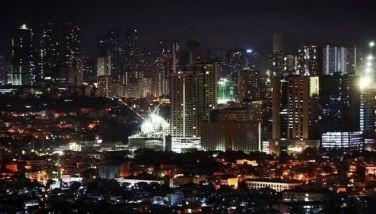Are they doing enough?

The G20 summit meeting in London is being deemed a success. Just getting all those world leaders to agree on anything is accomplishment enough. It must be a miracle to get them to agree to provide $1.1 trillion to help respond to the worldwide economic crisis, agree to the principle of expanding financial regulation to include all financial institutions, instruments and markets, agree to sanction tax havens, pledge to resist protectionism and do what is necessary to get markets going again among other things.
As The Economist puts it, after putting aside “all the political drama, the posturing, the preening and the outsize ambitions,” did they accomplish, the “lofty aspirations to rewrite the rules of global finance and reshape the world’s financial institutions?” Definitely not. The devil is in the details and they didn’t provide us with much detail. At best, it is reform in progress.
“Are these people, who between them run around 90 percent of the world economy, doing what it takes to combat the worst global recession in 80 years?” The Economist warned that the biggest risk “is still that governments overall do too little…”
Indeed, mass media did focus too much on the conflict between America ’s call for more stimulus and Europe’s call for more regulation… or the conflict between France and China over how to deal with tax havens. This particular conflict was remedied through the suggestion of President Obama to substitute the word “recognize” to “note” so that the final communiqué said: “We note that the O.E.C.D. has today published a list of countries assessed by the Global Forum against the international standard for exchange of tax information.”
As it happened, the Philippines turned out to be among the first to be named in a “name and shame” list of notorious tax havens and money launderers. That’s probably because our legislators made our banking secrecy law stricter than the Swiss out of fear of their own illicitly acquired funds. It is an outrage that our own judicial system seems to be protecting the grafters and other shady characters whose accounts are ordered unfrozen even before viable cases could be prepared by the Anti-Money Laundering Council and anti graft prosecutors. The JocJoc Bolante case is a good example.
In any case, it is also clear that the world’s top leaders didn’t have a clue if everything they are doing will finally deal with the festering economic crisis. They continually warned that there are no quick fixes and that they will have to constantly monitor and improvise as they go along. The only thing they were sure about is the need for a worldwide approach where individual country prerogatives may sometimes have to be compromised for the greater good.
The one thing that stuck to my mind is one of the five points in the criteria for measuring success offered by the British Prime Minister. The last item in that list talks about accomplishing changes in an environmentally responsible manner. That makes what seems as primarily an economic or financial crisis as something larger — our planet’s survival. The crisis is an opportunity to go on a new and more sustainable path of development that is friendlier to the planet.
That was precisely what the development economist Jeffrey Sachs was saying before the summit began. This global economic crisis, he wrote, is really a transition to sustainability. Sachs pointed out that “the scarcity of primary commodities and damage from climate change in recent years contributed to the destabilization of the world economy that gave rise to the current crisis. Soaring food and fuel prices and major natural disasters played an important role in undermining financial markets, household purchasing power, and even political stability.”
This gives added significance to the pledge of the world leaders in London to help developing countries. Sachs warned that “the global crisis means that sustainable investments are being curtailed rather than expanded in the developing world. Developed and developing countries, Sachs said, “should build infrastructure suitable for the 21st century. This includes an efficient electricity grid fed by renewable energy; fiber and wireless networks that carry telephony and broadband Internet; water, irrigation, and sewerage systems that efficiently use and recycle fresh water; urban and inter-city public transit systems; safer highways; and networks of protected natural areas that conserve biodiversity and the habitats of threatened species.”
With the credit crunch, access to international bank loans, bond flotations, and foreign direct investment is lost. Sachs warned that infrastructure projects talked about in the past are now being shelved, threatening the political and economic stability of dozens of developing countries. As we all know from our own experience here in the Philippines , all those are on top of an already huge backlog of needed infrastructure we don’t have the means to provide.
Sachs explained that these investments are needed in the short term to offset the decline in worldwide consumption spending that underlies the global recession. This is where such institutions as the Asian Development Bank and the World Bank should come in to help countries like ours deal with the global crisis. As Sachs pointed out, “they are needed in the long term, because a world crowded with 6.8 billion people (and rising) simply cannot sustain economic growth unless it adopts sustainable technologies that economize on scarce natural resources.”
So, it isn’t just about rogue bankers and their outsized bonuses nor is it about government providing a short sharp stimulus to restore economic growth. “This is wrong,” Sachs says. “What will be needed is an overhaul of the world economy toward sustainability.” Developed countries, he said, will have to do far more to help poor countries through the transition to sustainability. “Whereas most of the “stimulus” legislation to date has been short-term and inward-looking, increased funding for sustainable infrastructure in poor countries would provide a powerful boost to rich-world economies.”
After all the summit excitement dies down, what matters most is as President Obama admits, what leaders do when they get home. The deals contained in the G-20 communiqué will only have a limited effect on the world economic downturn. Even the over a trillion dollars pledged to the IMF will not help development countries invest in sustainable development infrastructure. Any help to poor countries seems limited in scope. And until there is enough political will to work for a conclusion of the Doha round, there seems little hope for a global trade deal that could lift the prospects of developing countries in the long term.
Still, the summit was a strong recognition the world is moving to a truly global economy. Governments can only be effective if they too adopt this expanded mindset. Yet, the optimism Obama and other leaders who gathered in London last week expressed may be misplaced.
It is almost wishful thinking to believe that the commitments they called unprecedented in modern history will arrest the financial free-fall and begin to rebuild a new international economy less vulnerable to disaster. Even for people in the developed world, the promise of the G 20 summit sounds too good to be true for so long as they are still losing their jobs, losing their homes and losing their hope for the future.
But as the Obama team has once observed, we should never waste a good crisis. In this case, it should be used to introduce lasting reforms and rebuild economies in a greener, less energy-intensive way. The worse thing that could be said by historians is for our leaders to have done too little to make a difference in confronting this crisis. The G-20 summit should not be seen as an end point but a staging point as we move on the road to recovery and a new world that’s more sustainable for its growing population.
Morning perk
According to an e-mail I received, here is how to perk your mood as you start up your computer for the day’s work.
1. Open a new file.
2. Name the new file “Gloria Arroyo.”
3. Send it to the Recycle Bin.
4. Empty the Recycle Bin.
5. The PC will ask: “Do you really want to get rid of ‘Gloria Arroyo’?”
6. Click with vengeance, “Yes.”
7. Then start to feel better and happily look forward to the rest of the day with a smile on your face.
Boo Chanco’s e-mail address is [email protected]
- Latest
- Trending





























